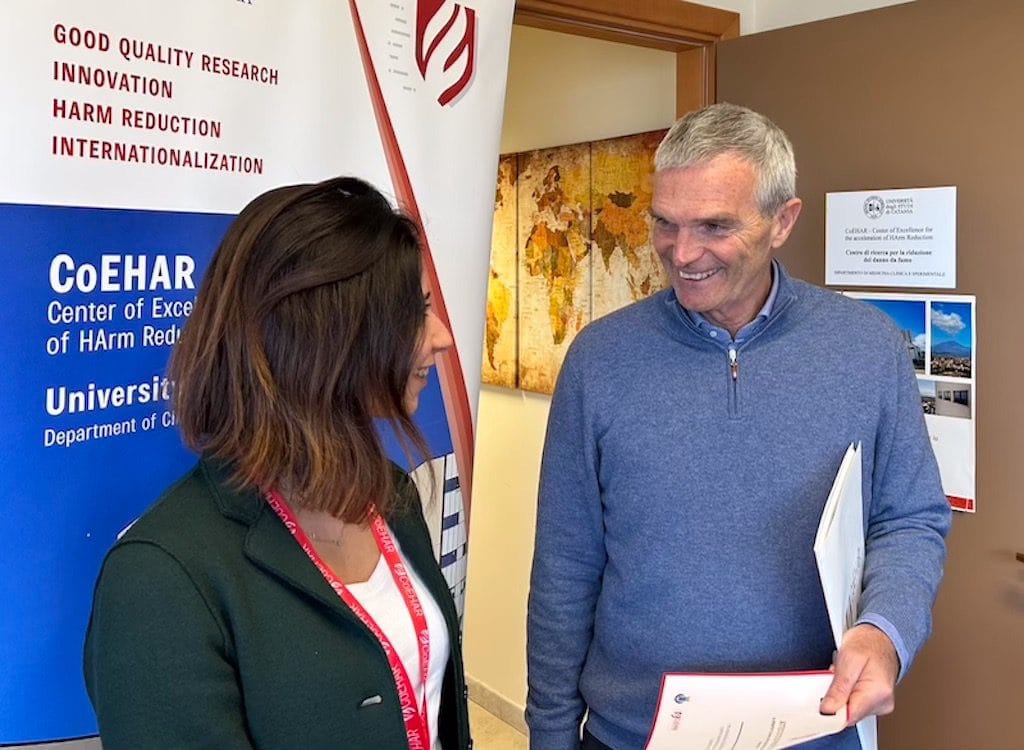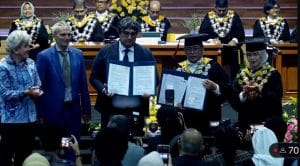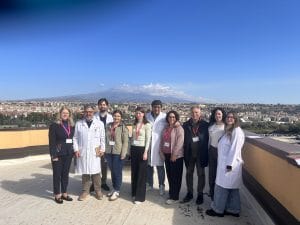Prof. Rosalia Emma is the new researcher at the University of Catania, hired with the PNRR funds to lead a project dedicated to reduce the harm caused by cigarette smoking.
The scientist from Catania will work in the CoEHAR laboratories for the next three years for the “Samothrace” project, the innovation ecosystem funded by the PNRR (through the NextGenerationEu programme) which brings together 28 partners including 4 universities, 5 research institutes, 4 large international companies and 10 small and medium-sized enterprises, with the University of Catania as the proposing subject and leader.
The researcher will focus on the development of artificial intelligence algorithms using new generation devices and sensors to modify cardio-pulmonary risk factors. The project team will see the collaboration of experts from the field of medicine, biology, clinical psychology, artificial intelligence and data science who will be combined to provide a revolutionary technological solution aimed at empowering health.
The goal of the researcher’s work is the development and the real-life scientific validation of a latest generation device based on the use of artificial intelligence that functions as a complex system of high precision and real-time monitoring of smoking behavior. Prof. Emma will conduct an observational study, under the supervision of the scientific director, prof. Riccardo Polosa (CoEHAR Founder), for the clinical validation of the device.
This is one of the first contracts for a researcher leaving in Italy with a precise and clear scientific reference to the principles of Harm Reduction.
High praise from Prof. Polosa, who formalized the start of the activities of the new researcher of the Sicilian university this morning at the Department of Clinical and Experimental Medicine of the University of Catania.

Rosalia Emma holds a degree in Health Biology at the University of Catania, a PhD in Translational Biomedicine and has signed dozens of scientific publications on the topic of harm reduction. Prof. Emma is currently a member of the scientific team of the Replica 2.0 project, coordinated by CoEHAR.




